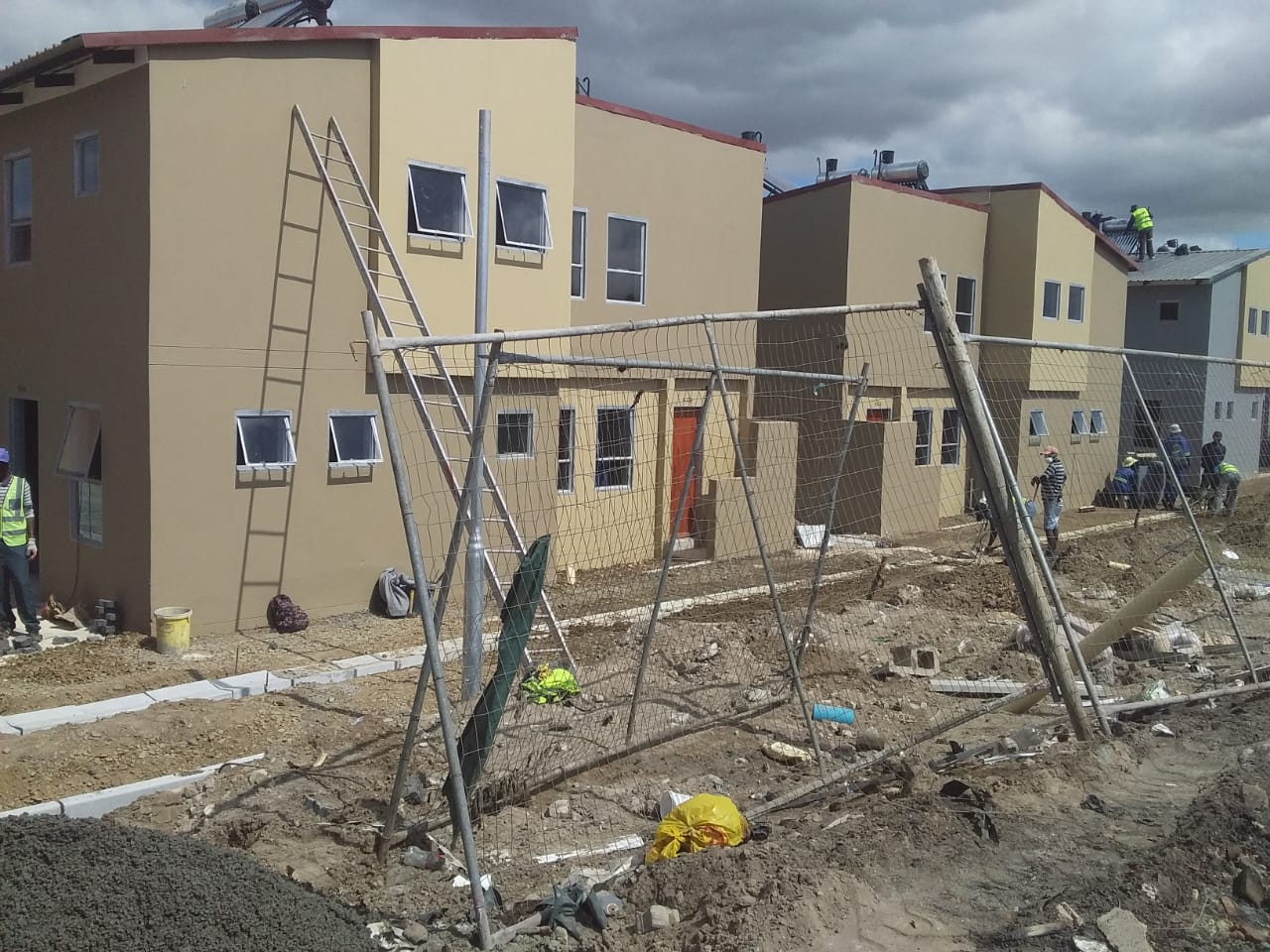I recently had a consultation with a homeless couple who had been living on the streets of Cape Town for years. They were finally awarded a government-subsidised house in Mfuleni. It felt like a rare win in an otherwise bleak housing crisis. For once, I could feel good about the outcome.
Then last week, while driving back from court, I saw the man standing at a street corner, begging. I was surprised. I waved him over immediately, asking what had happened to their house. He shrugged. “We still have it,” he said. “But I don’t have a job. I have to spend R50 just to get to town and sell these heart-shaped stickers.”
I should not have been surprised. This is how the system works. The government provides housing on the outskirts of the city, far from jobs, services, and opportunities. Instead of solving the housing crisis, it deepens spatial apartheid. The cost of simply getting to work (if you’re lucky enough to have a job or earning a small income through informal trading) is unbearable. Families are forced into impossible choices — keep a house but remain in poverty, or return to the streets where survival, though difficult, at least allows access to the economy.
Policy failure
This isn’t just an individual’s struggle. This is a policy failure. It’s about a housing system that still prioritises peripheral development, forcing the poor to the edges of the city while prime land is used for luxury developments and short-term rentals.
That’s why the recent Constitutional Court judgment in the Bromwell matter is so significant. The court ruled that the City of Cape Town’s emergency housing policy is unconstitutional in key ways:
- The City failed to create its own Temporary Emergency Accommodation Policy to work alongside the National Housing Programme.
- It refuses, on a blanket basis, to even consider emergency accommodation in the inner city.
- It provides inner-city transitional housing for unlawful occupiers but excludes people who were previously lawful tenants, like the Bromwell residents.
- It does nothing to mitigate the gentrification-driven evictions in Woodstock and Salt River, even though its own development policies contribute to this crisis.
- It deepens spatial apartheid by not offering emergency housing in the inner city to residents being displaced from historically working-class areas.
The court made it clear: locality matters. Access to the city matters. You cannot ignore the impact of evictions and gentrification while pushing people further and further away from economic hubs.
As Mathopo J put it: “The gentrification policy seeks to achieve that which the forced removal policy of apartheid failed to achieve and destroy one of the only communities that had managed to resist removals from ‘white’ Cape Town under apartheid. It is quite disconcerting that with this knowledge, the City failed to have an adequate plan for the evictees. The housing situation in the Western Cape has always been one which is desperate and there has not been significant change in the housing conditions in the Western Cape, and much of South Africa as a whole, decades after Grootboom and the new constitutional order. It is untenable for municipalities to conduct themselves in a manner that preserves spatial inequalities and reinforces patterns of social exclusion.”
 Cissie Gool House (the former Woodstock Hospital). (Photo: Gallo Images / Brenton Geach)
Cissie Gool House (the former Woodstock Hospital). (Photo: Gallo Images / Brenton Geach)
 A family sits with their belongings outside houses in Delft, Cape Town. (Photo: Nic Bothma / EPA)
A family sits with their belongings outside houses in Delft, Cape Town. (Photo: Nic Bothma / EPA)
We need to take market-based displacement as seriously as apartheid forced removals. The City's development policies might not come with the brutality of bulldozers and police trucks, but the result is the same — working-class communities are pushed out of well-located areas, erased by rising rents and unchecked speculation.
But while this ruling is an important step, it does not address the root causes of the crisis. Rising property prices, unchecked rent increases, and short-term rentals continue to displace long-standing communities. There is no mechanism in place to stop displacement before it happens. The cycle just repeats itself.
No affordable alternative
Take Cissie Gool House, for example. More than 1,000 people live in that abandoned City-owned building. Most were evicted from their homes in Woodstock and Salt River as rents skyrocketed. They had nowhere to go. This is what happens when there are no protections in place. People are left to fend for themselves, occupying vacant buildings because there is simply no affordable alternative.
We need a serious conversation about protections such as rent control. We need well researched and evidence-backed measures to cap skyrocketing rent increases, protect tenants from unfair evictions, and ensure that affordable housing remains in well-located areas. Without preventive measures, the City will always be playing catch-up — scrambling to provide emergency accommodation instead of fixing the broken housing system that creates the crisis in the first place.
Until then, the story of that couple in Mfuleni will keep repeating itself. And we will keep seeing the same people, standing at street corners, trying to survive. DM




 A South African family sits with their belongings outside houses in Delft, Cape Town, South Africa 19 February 2008. (Photo: Nic Bothma/ EPA)
A South African family sits with their belongings outside houses in Delft, Cape Town, South Africa 19 February 2008. (Photo: Nic Bothma/ EPA) 